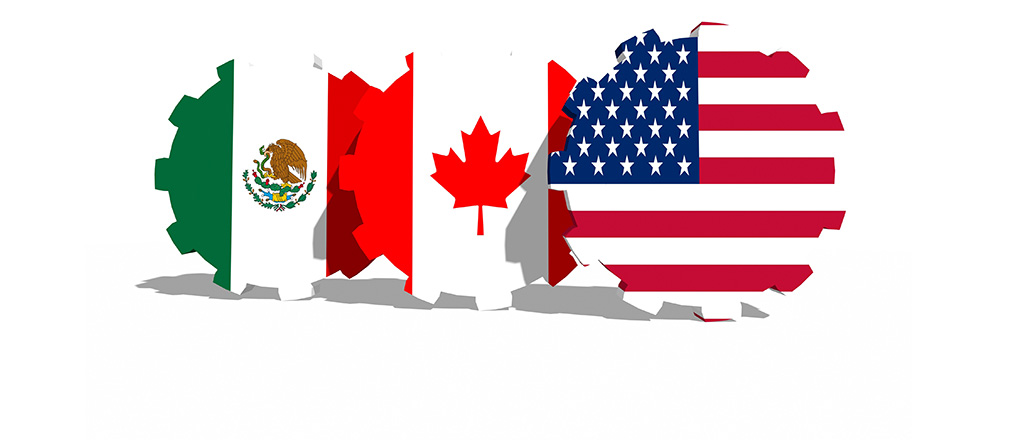With about two weeks left until what may be the final deadline for a new NAFTA this year, Mexico and Canada are suggesting it’s up to President Donald Trump to help make one happen.
U.S. Treasury Secretary Steven Mnuchin said Trump’s priority is getting a good deal, even if it means disregarding “any deadlines” to let current lawmakers approve on it. That would mean leaving a vote until the next Congress, which Trump’s Republican Party may no longer control after November’s midterm elections.
Mnuchin also said the administration would even be open to a so-called “skinny deal” for NAFTA, which would involve less significant changes to the pact that wouldn’t require congressional approval. But that’s not the White House’s objective, he said.
“There’s always a chance,” Bruce Heyman, a former U.S. ambassador to Canada under Barack Obama, told BNN Bloomberg TV, saying the “last leg” of trade talks is always tough. “I think the real question that has to be asked is: Does the U.S. administration want a deal or not? I think there’s a push-pull going on with Republicans.”
Talks have lately focused on the auto sector. The U.S. wants to rewrite rules so that a greater portion of a car is built in North America, and in the U.S. specifically. The U.S. has watered down some of its proposals, and Canada’s envoy to Washington has indicated the sides are very close to an agreement, but the U.S. and Mexico are said to be at odds over a provision to require a certain share of the vehicle to be built with higher-wage labour.
If an agreement is struck on autos, it’s possible the other contentious issues could fall into place and a deal could be reached quickly.
Other topics of contention are a U.S. proposal to dismantle Canada’s system of quotas and tariffs in its dairy sector, and on U.S. demands for a five-year sunset clause and to kill certain dispute panels — each of which was cited as a sticking point by Canadian Prime Minister Justin Trudeau last week.
Another issue revolves around U.S. demands to curtail the value of U.S. government contracts awarded to Canadian and Mexican companies.
Any country can quit the current NAFTA with six months’ notice. None has given that notice, though Trump regularly threatens to.
After nine months of negotiations, the nations remain far apart, Mnuchin said. “So whether we pass it in this Congress or we pass it in the new Congress, the president is determined that we renegotiate NAFTA,” he said. “That’s something we’re doing.”
Trudeau said during a U.S. trip last week that there’s a deal on the table that meets the U.S. objectives.
Lower-level officials are continuing negotiations but House Speaker Paul Ryan had said May 17 was the deadline to notify Congress of intent to sign a deal, citing U.S. trade law timelines. He’s since extended that time-frame by a week or two, putting the deadline near the end of May.
Negotiators have so far completed nine of about 30 chapters of a final deal, Mexico’s chief NAFTA negotiator Kenneth Smith Ramos said on Twitter Saturday. “The last mile will require flexibility from all 3 Parties in order to find the balances that may allow us to close the negotiation,” he wrote.


